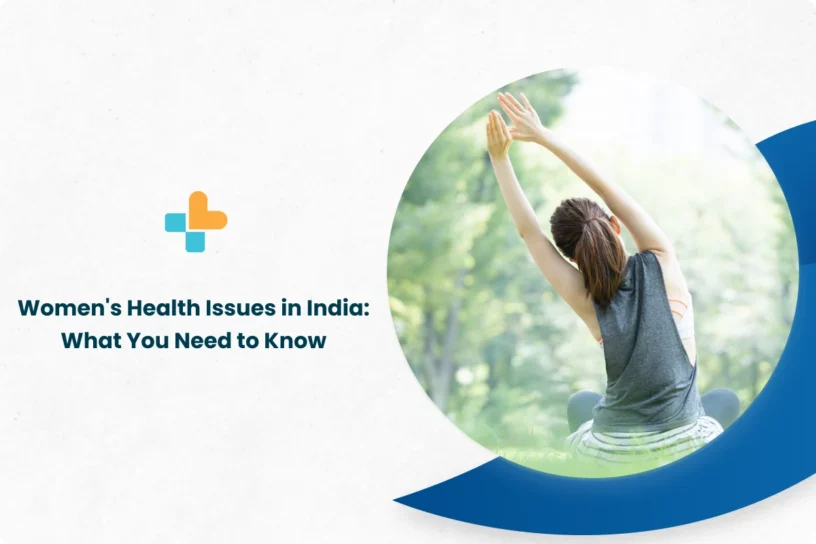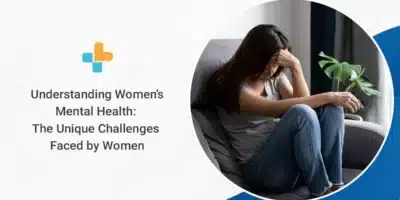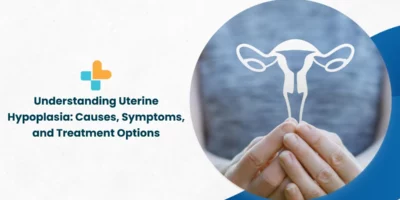For the past decade, women’s health has received more attention. Men and women have a number of comparable chronic health difficulties, but women also have specific health problems that need to be taken into account. A woman’s hectic daily schedule may put the healthy way of living on the back burner. Every woman must have access to information regarding the whole range of problems affecting women’s health, including those affecting not only the reproductive system but also the rest of the body. Their knowledge may encourage healthy lifestyle choices, which are the best means of preventing disease, extending life, and improving overall well-being.
Most ignored health issues that almost all Indian women face
The problem of gender disparity has been existing in India for years. India is ranked 135th out of 146 nations in the global gender gap report released in July 2022. The worst part was that it stood at 146th position for the health and survival sub-index.
Despite the fact that women in India have an average life expectancy of 2.7 years more than their male counterparts, there is only a 0.1-year gap in their good life expectancies, suggesting that women may not necessarily lead healthier lifestyles than men. Some women’s health issues are graver and need to be discussed seriously.
Having menstrual pain
Painful periods are more common than people might think. Menstrual cramps, which cause throbbing, agonizing pain in the lower abdomen, are the most common cause of the discomfort. Though somewhat normal, having menstrual pain can obstruct the daily functioning of a woman. Sometimes the intensity is very high, a possible indicator of some underlying disease. Disorders like endometriosis, ovarian cysts, etc. may trigger intense pain during periods. The problem gets more serious in a conservative society like India, where there’s a lack of menstrual literacy and it’s considered a taboo topic for discussion. Apart from the uncomfortable pain, other side effects include diarrhea, fatigue, weakness, nausea, etc.
Reduction in bone density
Women are more likely to experience bone ailments than males since they typically have smaller, thinner bones. Almost 80% of Indian women suffer from bone thinning. The danger of osteoporosis, which can lead to joint pain and easily cracked bones, rises with bone density loss. After menopause, the reduced secretion of estrogen increases the loss of bone density.
Difficulties with mental health
As primarily a patriarchial society, gender biases are deeply rooted in India. In accordance with the National Family Health Survey from 2019 to 2021, 30% of women in India experience gender-based violence, which puts a third of all Indian women at an increased risk of having anxiety and depressive disorders. Moreover, women suffering from mental health problems face immense stigma. Combined with restricted access to economic freedom, privacy, and the internet and digital gadgets, the availability of mental healthcare remains a utopian dream for many.
Dysfunctional pelvic floor
A weaker or malfunctioning pelvic floor is a very frequent issue that several Indian women who have given birth and/or are over 40 years old deal with. Most women who have pelvic floor dysfunction appear to disregard it as an aging-related decline in health rather than seeing it as a problem that needs to be treated by a doctor. Lack of awareness prevents early detection and possible treatment.
How to mitigate these issues faced?
Lack of knowledge and financial means are two major factors hindering the improvement of women’s health in India. Technology can be used to reach millions of women nationwide and educate them about women’s health issues and bust misconceptions. There must be equal access to health care for all women in society. It is important to consider allocating more resources and healthcare money to women’s health. Rural women desperately need inexpensive gender-specific insurance coverages that are tailored to their needs. By launching initiatives such as the “Pradhan Mantri Surakshit Matritva Abhiyan” or the “Pradhan Mantri Jan Arogya Yojana”, the government is doing its part.
Also, It’s important to recruit more women for careers in healthcare. Women patients will be less reluctant to seek prompt medical attention as a result of this. In the long run, this can significantly reduce morbidity and death.
Conclusion
For any nation, taking care of women’s health and lifestyle must be one of the priorities. Like numerous other nations, India is dealing with a variety of women’s health issues. Keeping that in mind, Ayu Health has customized services for women, catering to their specific needs. It’s necessary that Indian women start taking their health seriously and get the medical care they deserve. Contact 6366100800 to know more about the exclusive healthcare plans.
Our Hospital Locations
Gynaecology Surgery Hospitals in Chandigarh | Gynaecology Surgery Hospitals in Bangalore | Gynaecology Surgery Hospitals in Jaipur | Gynaecology Surgery Hospitals in NCR | Gynaecology Surgery Hospitals in Hyderabad
Our Doctors
Gynaecology Surgery Doctors in Chandigarh | Gynaecology Surgery Doctors in Bangalore | Gynaecology Surgery Doctors in Jaipur | Gynaecology Surgery Doctors in NCR | Gynaecology Surgery Doctors in Hyderabad
About the Author





